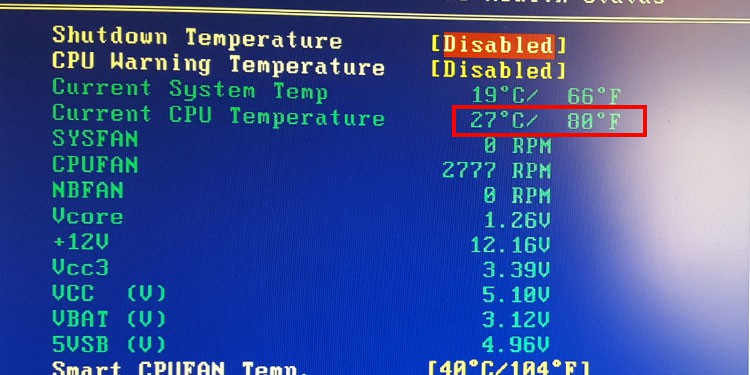Your hardware has a high chance of degrading if it continues to operate at a high temperature, especially your CPU. However, the built-in protection does shut down the entire processor in case the CPU reaches extreme temperature. If you want your system to last longer, we always recommend you keep tabs on all hardware temperatures. Here, in this article, we have mentioned few reliable ways to monitor your CPU temp on you windows 11 PC. You can either check CPU temperature from BIOS or by using hardware monitoring tools.
Using BIOS
A motherboard’s BIOS contains all the details about the system’s health. And this includes CPU and system temperatures, voltage, and fan speed.
Getting Into BIOS
Depending on the motherboard manufacturer, you can get into BIOS in multiple ways. In most computers, pressing the Delete key repeatedly during startup prompts you to BIOS. Refer to the motherboard or laptop user manual to get into BIOS.
Check CPU Temp
Once inside BIOS, follow the steps mentioned below. Although the BIOS gives you the real-time CPU temperature, it is not possible to get the temperature during maximum CPU usage. This means that when the system reaches BIOS, its temperature already lowers. Therefore, we always recommend using a hardware monitoring application to get an accurate CPU temperature.
Using Hardware Monitor Application
Hardware monitoring applications are a great way to get a real-time temperature reading. You can not only check CPU and GPU but, overall system temperature as well. Here, we have discussed a few hardware monitoring applications.
MSI AfterBurner
MSI Afterburner provides you with a graphical interface that provides all your CPU core’s temperatures. Like HWMonitor, it also includes CPU core usage, clock speed, and power. The application also lets the user limit GPU temperature and fan speed as well.
Core Temp
Core temperature not only measures the CPU temperature but also gets information about all the individual cores from your CPU. Besides this, you can also get its power consumption, power load, and frequency. Install and run Core Temp. Under temperature reading, you can see all your core’s temperatures.
HWiNFO
HWiNFO is a great application to not only get details about hardware temperature but also the system details. This includes information about CPU processors, motherboards, video adapters, and many more.
CPUID HWMonitor
HWMonitor also measures data from sensors on the motherboard and displays accurate temperature readings. Along with this, it also measures the hard drive’s read-write speed, CPU clock speed, power, GPU usage, etc.
What Is Normal CPU Temp?
Depending on CPU usage, its temperature will vary. On idle, your CPU’s ideal temperature should be below 35°C. But temperature under 45 °C is also considered good enough unless it exceeds this limit. On half-load (50%), the temperature should be around 50°C to 65°C. Whereas on full load, the temperature should not exceed 80°C. If the CPU temp is beyond these limits, you might want to perform the necessary measures to lower CPU temperature.

![]()




